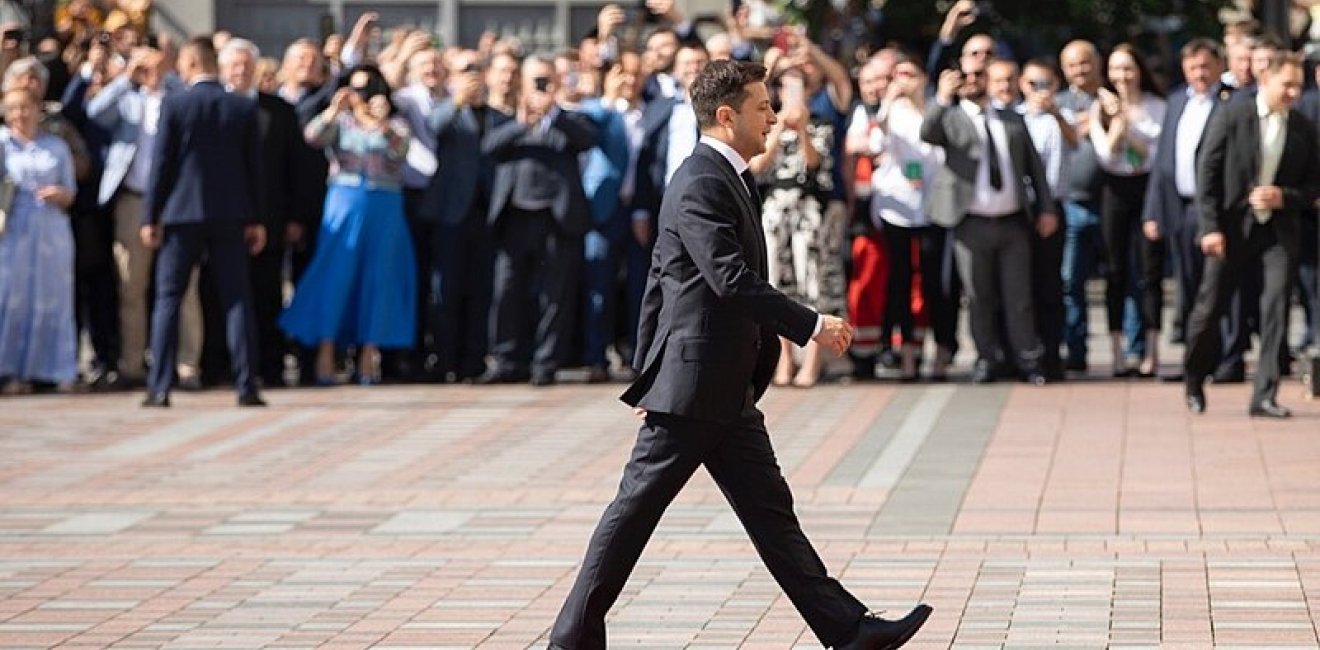
A blog of the Kennan Institute
BY MYKHAILO MINAKOV
Ukrainians knew at the start of 2019 that they were entering a super-election year, with both spring presidential and autumn parliamentary elections scheduled. What they did not anticipate was the new president, Volodymyr Zelenskyy, announcing in his inaugural speech to the Verkhovna Rada that he was dissolving parliament—and that parliamentary elections would therefore have to take place much sooner than expected, on July 21 rather than October 26.
No one was prepared for this change in schedule. The Central Electoral Commission has said that it might not be able to produce the ballots in time for the earlier parliamentary elections. The main parties are rushing to create their lists of candidates. The major candidates are urgently meeting with their constituencies on building new roads and schools.
However, Ukrainians’ plans for a summer vacation may still pan out, since the Constitutional Court has begun urgent deliberations to decide whether Zelenskyy’s dismissal of parliament is constitutional. On the one hand, de facto, the country’s governing coalition, comprising Arseny Yatsenyuk’s People’s Front party as the parliamentary faction and the Petr Poroshenko Bloc as the presidential party, as well as several other smaller factions, did not exist for more than three years, after Tymoshenko and Lyashko left it in 2016, and there were some unappointed ministers in the cabinet. On the other hand, de jure, the parliamentary speaker announced the death of the coalition only in May 2019.
Even though there is a chance the elections will be postponed beyond July 21 (the Court is expected to issue its verdict by the end of June), all the major Ukrainian parties have started preparations. The Petr Poroshenko Bloc was renamed European Solidarity, while the former president has declared he wants to be “the nation’s father,” like Jarosław Kaczyńsky, who has no position but defines today’s Polish politics from behind the scenes. Yatsenyuk’s People’s Front, facing vast unpopularity, has decided it will try to get seats in the new parliament through majoritarian districts. Leaders of the different factions of the Opposition Bloc are holding talks on combining forces to regain the votes in Ukraine’s South-East that went to Zelenskyy. Yulia Tymoshenko’s party has spread out to the regions to gain as much support for party and majoritarian elections as possible. An emerging political group, Voice, led by pop singer Svyatoslav Vakarchuk, has started an active campaign in the same regions and among the same demographics that gave their votes to Poroshenko.
Unlike most of the older parties, which have managed to attract only modest support, Zelenskyy’s party is garnering more and more support, even though it has neither a coherent platform nor a list in place. The party will be led by a young political expert and campaigner, Dmytro Razumkov. To fill in the echoing space left by an absent team, the Servant of the People party (named after the popular TV series starring Zelenskyy as an ethical schoolteacher who rises to become president) has requested e-applications from its supporters to nominate the best candidates.
So far the chances of the old and new parties have been assessed by Ukrainian voters this way. The Servant of the People party has the support of 48.2 percent of those who plan to vote in the parliamentary elections and have settled on a party (in two weeks this metric moved up by nine percent). Its closest rival, the Opposition Bloc, is almost forty percentage points lower, with only 10.7 percent of likely voters supporting it. Poroshenko’s European Solidarity is supported by 7.8 percent of likely voters, Tymoshenko’s Batkivshchyna by 6.9 percent. Vakarchuk’s Voice party stands a chance of winning seats in parliament with 5.6 percent. Other parties do not meet the 5 percent threshold in opinion polls.
With elections looming, relations between President Zelenskyy and the Verkhovna Rada remain hostile. After delaying the inauguration of the president-elect, a majority in parliament has consistently derailed all the president’s initiatives. Zelenskyy failed to get a passing vote on changing the election law. The Rada continues to ignore other presidential draft laws, such as legislation on impeachment and rescinding MPs’ immunity. Also, the Rada did not approve Prime Minister Volodymyr Groysman’s resignation, tendered at the request of the president. The war between the president’s office and parliament has already led to a stalemate in government and does not serve the nation.
In this hostile environment, President Zelenskyy has focused on areas where he can make a difference, his administration and international relations.
The president appointed the key staff of his administration during his first ten days in office. My research shows that out of a dozen appointments to key administration, general staff, and security service positions, three have past links to the wealthy businessman Ihor Kolomoisky, who some allege aided Zelenskyy’s bid for the presidency. A larger group of appointees come from Zelenskyy’s media company, each of them counterbalancing the appointees in the previous group in case there should be divided loyalties. Others, such as Ruslan Ryaboshapka, Ruslan Stefanchuk, and Vadym Prystaiko, built solid careers in their sectors of responsibility—anticorruption efforts, the law, and diplomacy, respectively—and constitute a group of technocrats.
President Zelenskyy has also made a symbolic choice for his first visit abroad. He went to Brussels, where he met with EU and NATO leaders on June 4. There Zelenskyy issued an important statement that Euro-Atlantic integration remains a priority for his presidency.
Even before setting out on his Brussels trip, Zelenskyy had started a dialogue with the International Monetary Fund. On May 28 he met with the IMF mission in Kyiv, where the parties opened a discussion of cooperation priorities. The next steps in the partnership will be discussed after parliamentary elections and the appointment of a new cabinet.
Which brings us back to the parliamentary elections. They are crucial for Ukraine, as they will effectively decide how the country will be led under a new president and new prime minister. The answer to that will become apparent only in August, when the results of the parliamentary elections are announced and a new governing coalition emerges, unless the Constitutional Court postpones the election until October.
Author


Kennan Institute
After more than 50 years as a vital part of the Wilson Center legacy, the Kennan Institute has become an independent think tank. You can find the current website for the Kennan Institute at kennaninstitute.org. Please look for future announcements about partnership activities between the Wilson Center and the Kennan Institute at Wilson Center Press Room. The Kennan Institute is the premier US center for advanced research on Eurasia and the oldest and largest regional program at the Woodrow Wilson International Center for Scholars. The Kennan Institute is committed to improving American understanding of Russia, Ukraine, Central Asia, the South Caucasus, and the surrounding region through research and exchange. Read more

Explore More in Focus Ukraine
Browse Focus Ukraine
Talking to the Dead to Heal the Living

Ukrainian Issue in Polish Elections


